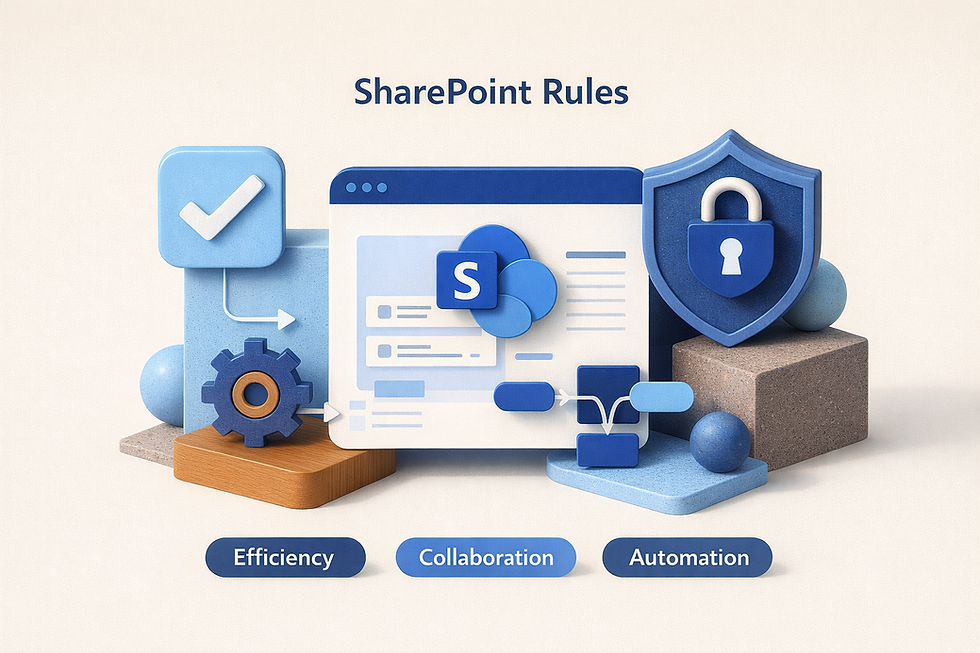How to Avoid the End-of-Year Holiday Headache: The Necessity of an Automated Time-Off Management System
- Dec 9, 2024
- 2 min read
Understanding the Challenges of Managing Employee Leave at Year-End.
As the end of the calendar year approaches, and with it the festive season, many employees are eagerly anticipating some well-earned rest. However, for HR departments and managers, this period can become particularly stressful due to the complexities of managing year-end holiday balances.

The Complications of Year-End Holiday Management
One of the main issues is the requirement for employees to use their annual leave before the year's end, lest they lose it. This seemingly straightforward task can become a logistical nightmare, especially if managed manually.
Managers and HR teams need to consolidate individual holiday balances, which may be dispersed across various departments, systems, spreadsheets, or even paper records. They must then analyse this data to determine who has surplus or insufficient leave and communicate with employees to ensure they take the appropriate amount of time off.
This process is laborious, prone to errors, and can lead to several issues such as:
Decreased productivity and morale
Employees might feel pressured into taking leave they neither want nor need, or miss out on deserved time off.
Increased costs and risks
Companies may face financial strain or compliance risks from accumulated unused leave or necessary payouts for unused holiday.
Reduced compliance and visibility
Companies might lack accurate holiday records, making it difficult to prove adherence to company policies.

The Solution: An Automated Time-off Management System
An automated system can revolutionise this process.
Such systems automatically track, calculate, and manage individual holiday balances, integrating seamlessly with other systems like Outlook calendars. They generate reports, alerts, and allow for online holiday requests and approvals, providing a comprehensive view of time-off balances and potential conflicts.
By implementing an automated system, companies can enjoy numerous benefits, including:
Saved time and effort
Eliminate the need for manual data gathering and communication.
Improved accuracy and reliability
Minimise human errors and inconsistencies.
Enhanced employee satisfaction and engagement
Provide transparency, fairness, and flexibility in managing leave.
Reduced costs and risks
Avoid unnecessary payouts or the accumulation of excess leave.

Choosing the Right System
When selecting an automated system, it's important to consider the broader scope of time-off management beyond just holidays. Ensure the system can handle various types of leave, such as maternity, paternity, jury service, and compassionate leave, to avoid unseen conflicts.
Additionally, consider systems that integrate with daily tools like Microsoft 365. Most employees use Outlook for their work calendars and Microsoft Teams or SharePoint for accessing company policies and procedures. A system that operates within these platforms streamlines workflows and enhances efficiency.
Conclusion
Managing year-end holiday balances can be a daunting task, especially if handled manually.
It can cause significant stress and negatively impact company performance and reputation. However, by adopting an automated system, companies can simplify this process, improve accuracy, enhance employee satisfaction, and reduce costs and risks.
Integrating your holiday management system within Microsoft 365 ensures it aligns with your employees' daily workflow, fostering a more efficient and harmonious work environment.
Consider investing in an automated system this holiday season - it might just be the best gift you can give yourself and your company.
For further information on how an integrated time-off management system can benefit your company, visit our Time-off Manager solution.




Comments